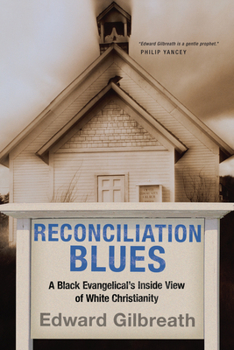Reconciliation Blues: A Black Evangelical's Inside View of White Christianity
Select Format
Select Condition 
Book Overview
Merit Award, 2007 Christianity Today Christianity and Culture Book
What is the state of racial reconciliation in evangelical churches today? Are we truly united?
In Reconciliation Blues journalist Edward Gilbreath gives an insightful, honest picture of both the history and the present state of racial reconciliation in evangelical churches. In his thoughtful overview he looks at a wide range of figures, such as Howard O. Jones, Tom Skinner, Dr. Martin Luther King Jr., Jesse Jackson and John Perkins.
Charting progress as well as setbacks, his words offer encouragement for black evangelicals feeling alone, clarity for white evangelicals who want to understand more deeply, and fresh vision for all who want to move forward toward Christ's prayer "that all of them may be one."
Now in paper





